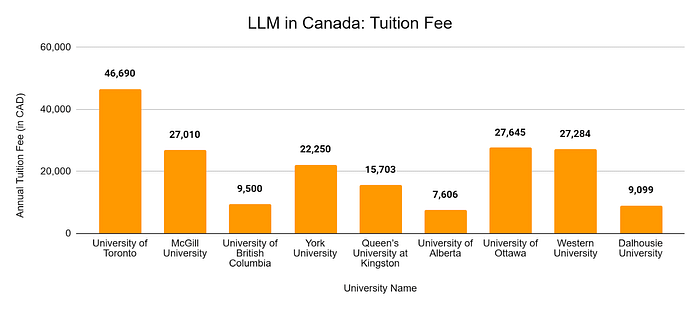
When family law issues arise, there are multiple courts that can handle them. Whether you need to file for divorce, child custody or support claim, or have received court papers, understanding which court is most suitable can give you peace of mind as you proceed with your case.
Every state has its own set of family law regulations and procedures. Fortunately, experienced family law attorneys are your strongest allies in any matter that involves family law.
Child Custody
Custody is the legal and physical relationship a child has with one or both of its parents, including all rights and responsibilities that each parent has in making decisions regarding education, religious upbringing, healthcare and other important aspects of the child’s wellbeing.
When determining custody, the court strives to reach a decision that is in the best interests of the child. This decision is made after considering various factors, such as the wishes of the child, his or her relationship with each parent and siblings, other people who could substantially impact his/her best interests, each party’s mental and physical health, and any relevant circumstances.
Custody can be divided into two categories: joint legal custody and sole legal custody. Joint custody means both parents have equal rights to make major decisions about their children’s upbringing; sole custody gives one parent sole control of these decisions unless a judge finds it not in the child’s best interests.
Sole custody is only awarded in cases where parents cannot come to an agreement on a parenting plan that allows the child to spend time with both parents. In such cases, the court orders a parenting plan outlining joint physical custody and visitation rights for both parents.
If you want to see your child, you must abide by the custody or visitation order that the court issues. Otherwise, the judge or caseworker has the authority to prohibit access.
Attend all meetings and hearings related to your case, if possible. This demonstrates your dedication to the child and allows the court or caseworker to get to know you better as an individual.
If you have any doubts about your rights and obligations as a parent, consulting with a family lawyer is recommended. They can offer guidance on how best to safeguard both your interests and those of your child.
Child Support
Every parent is legally required to provide financial support for their children. The amount of child support ordered depends on several factors, including the parents’ income and what needs the child has. Most states have guidelines that help judges decide how much support should be ordered.
The basic child support obligation requires money for food, shelter, clothing and other general expenses. There are mandatory add-on costs such as health insurance and child care that must be covered equally by both parents according to a formula that takes each parent’s income into account.
Child support may be adjusted if either parent’s circumstances change. This could occur due to a change in custody, loss of employment, or the birth of a new child.
Some changes can be implemented without court intervention if parents can come to an agreement on their own. If this is not feasible, family lawyers can offer assistance.
Modifying child support obligations can be done when either parent’s circumstances have changed, rendering the current payment amount no longer reasonable or equitable. This may be done through an application to the courts or by a parent requesting to alter payments.
The child support order is periodically reviewed to ensure it accurately reflects both parents’ financial status and current expenses. This involves reviewing tax returns, spending habits, parenting abilities and any past missed payments. Furthermore, it takes into account the child’s best interests as well as any past periods of unpaid bills.
Spousal Support
When someone obtains divorce, they have the option of asking the court for support payments (also known as spousal support) from their spouse. In certain instances, these payments may even be awarded before finalizing the divorce documents.
Spousal support, also referred to as maintenance or alimony in some states, may be available if one spouse makes less money than their partner or takes care of children instead of working.
When calculating how much spousal support to award, judges take into account several factors. Most importantly, need, ability to pay and the length of marriage will all be taken into account.
Judges will also take into account other factors, such as the standard of living during the marriage and both parties’ ages and health. Furthermore, they take into account how many minor children there are and their educational level.
The court can also order permanent alimony, which is paid to the recipient for life or until either party dies or remarries. The amount of permanent alimony can be adjusted if circumstances change such as finding a better job, receiving significant income sources or incurring medical expenses not covered by insurance.
Spousal support is an integral area of family law that should be addressed as soon as possible, if either you or your partner are facing financial difficulty. Speaking to an experienced family law attorney is the best way to understand your rights and options. They’ll explain how alimony works, estimate your payments, and plan for the future; additionally, they can represent you in case of a spousal support dispute.
Adoption
Adoption is the legal process that creates a lifelong bond between adoptive parents and the child they are adopting. This can occur through various means such as domestic infant adoption, international adoption, or foster care adoptions.
Adoption is the legal process by which a birth parent relinquishes their parental rights to the adoptive parents. This can be done voluntarily or involuntarily. When both parties consent to the adoption, they are agreeing to forgo all legal rights and responsibilities with regards to the child.
If the birth parent wishes to withdraw consent for adoption, it’s essential that they do so promptly. Doing so could pose potential difficulties for the adoptive parents such as gaining access to medical records of the child or changing their mind about the adoption altogether.
The period in which birth parents can revoke their consent varies by state. Generally, you have seven days after signing legal paperwork to be able to withdraw it.
You have the right to withdraw your consent if the adoptive parents change their mind about adoption or have other children that were lost to social services in the past. Furthermore, you are entitled to request any medical information about a child from them that they refuse to provide you.
Adopting a child is an enormous responsibility, so it’s essential that you do your research and select the right agency. Make sure they have experience and expertise with local adoption laws in your area, plus they should answer all of your questions and offer support throughout the entire process.
Paternity
Once a man is recognized as the legal father of his child, they are entitled to certain privileges and obligations. These include financial support, custody rights and parenting time. These entitlements stem from their biological connection.
Establishing paternity is usually established through genetic testing, commonly referred to as DNA testing. This form of evidence is more reliable than other forms of proof and can be utilized in both formal and informal proceedings for proof of parentage.
Anyone attempting to establish paternity should become acquainted with the laws in their state and consult a family law attorney about their specific case. Establishing paternity can be crucial in cases involving child custody, adoption, and inheritance.
Furthermore, increasing a child’s standard of living through parent support payments and government programs such as Social Security, disability or veterans’ benefits may improve their prospects for success.
Establishing paternity is a complex process that requires court intervention. Many factors come into play when making this determination, such as the sexual relationship between a mother and potential father; when and how she was conception; and results of genetic tests.
In most states, courts require a trial to establish paternity. At this hearing, each party has the opportunity to present evidence and arguments to the judge.
Paternity determinations are essential in cases involving child custody, adoption, inheritance and more. It may even save a child’s life by providing doctors with access to their complete medical history. Furthermore, filing for paternity can help reunite estranged fathers with their children.



